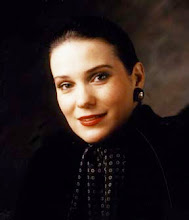In a recent New York Times article, Laurel Naversen Geraghty wrote, "I Am Not a Crab: When Wrinkles Lie" which was perfect for my week of 'facial' blogs.
"'I was looking at this little boy (in the grocery store),' Ms. Arlene Miller said, 'and he turned around to his mommy and he said, Mommy, why was that lady angry at me?' It really, really bothered me. I was a teacher, and to have a kid think that I was angry at him when I wasn't made me feel like two cents.'
"The boys reaction, Ms. Miller later theorized, may have been prompted by the 'furrows of my forehead the corners of my eyes, and some angular lines along the sides of my nose.'
"Nalini Ambady, a psychology professor at Tufts, said, 'In 40 milliseconds, people can accurately judge what we are saying with our expression.'
"But what if a face conveys thoughts or feelings that aren't really there? What if time etches lines that send skepticism, happiness or something else entirely -- that springs from the dermis rather than the heart?
"At any age, an expression can send unintended signals. 'The face is both a voluntary and an involuntary system,' said Paul Ekman, an emeritus professor of psychiatry at the University of California, San Francisco, 'so we may be wanting to convey a smile or a grin, but involuntarily our face may betray even within a smile itself that we're actually a little angry or a little sad or a little disgusted.'
"If lines, creases, sags or folds that mimic an emotion become fixtures on a face, 'we may incorrectly make the presumption that the person is having that emotion all the time,' said Dr. Ekman, the author of Emotions Revealed, and the director of a firm that consults on strengthening emotional skills.
"The effects may be profound, among them declining self-esteem, deteriorating professional performance, depression, anxiety or the disconcerting feeling that -- as Ms. Miller described it -- 'my outside didn't match my inside.'
"Nancy Etcoff, a clinical instructor in psychology at Harvard Medical School, the director of the Program in Aesthetics and Well Being at Massachusetts General Hospital, and the author of the book Survival of the Prettiest: The Science of Beauty said 'the image we project can influence our destiny.'
"'Tons of research shows there are a lot of advantages for people who are considered beautiful or attractive, everywhere from the boardroom to the bedroom,' Dr. Etcoff said, 'The same is true for people who tend to make positive expressions, because that suggests that you're personally happy, which is a very attractive feature in itself.'
"But even faces that are blank can influence others' opinions of you. A recent Tufts study found that individuals with the mask of Parkinsons's were perceived as less intelligent, socially savvy and trustworthy than other patients."
I know this information to be true. In my business as an Image Manager I've worked with men and women who've altered their faces with Botox and plastic surgery. Two particular people stand out in my mind; a male/female team who present Real Estate techniques for making money to mid-size audiences. The man had Botox and the woman had two rounds of plastic surgery (both were in their mid-sixties). As I reviewed their DVD, I noticed that their words didn't match their faces. I had a difficult time concentrating on their message and found I was scrolling backwards to listen more carefully to understand and interpret what they were saying. Ultimately, I decided not to take them as clients and advised them to take an improv acting class from a well known 'facial expression' teacher. The results were impressive.
Put your face in front of a video camera and talk to people you know well in a room. What is your face revealing? Does it match your message? Does your face smile when you are upset and angry . . .does your face frown when you are happy and excited? Do people respond to you in ways that don't make sense?
If you'd like an honest (and forthcoming) review of your 'facial' issues . . .send me your DVD.
In those famous words, "here's looking at you, kid." What are we seeing?
Sunday, February 1, 2009
Subscribe to:
Post Comments (Atom)

No comments:
Post a Comment